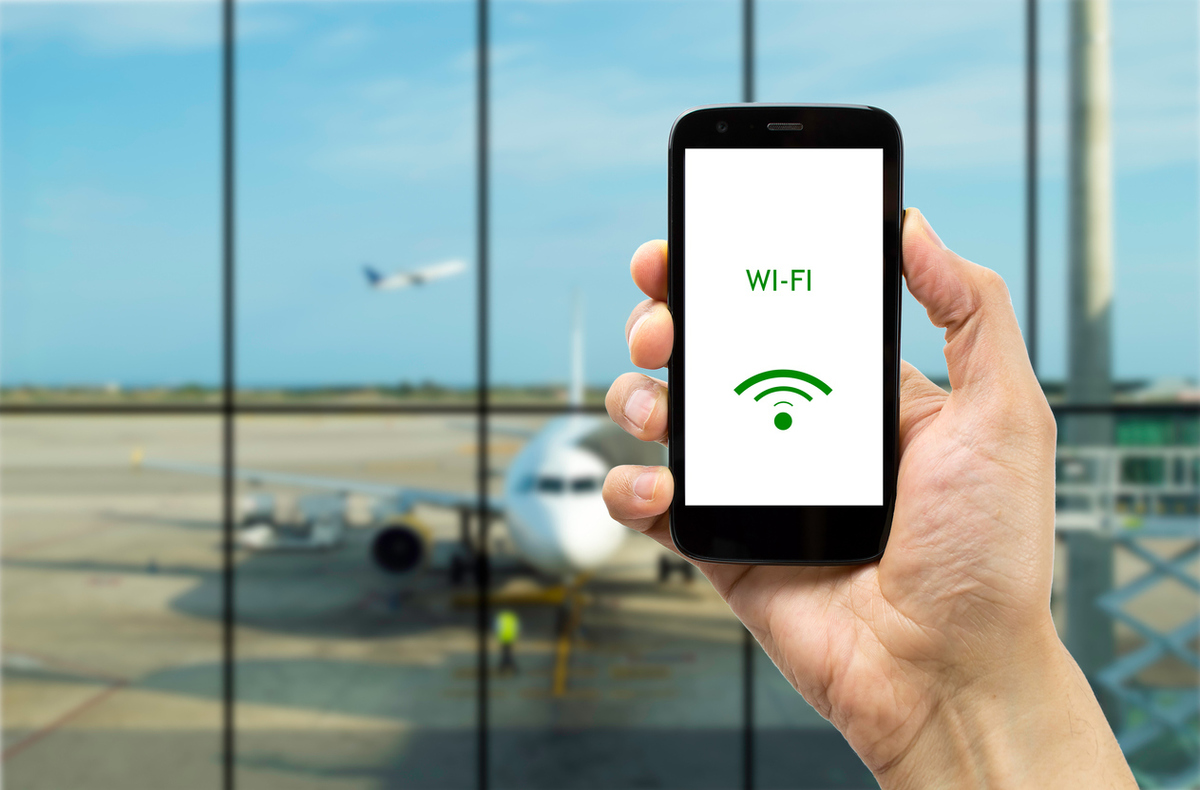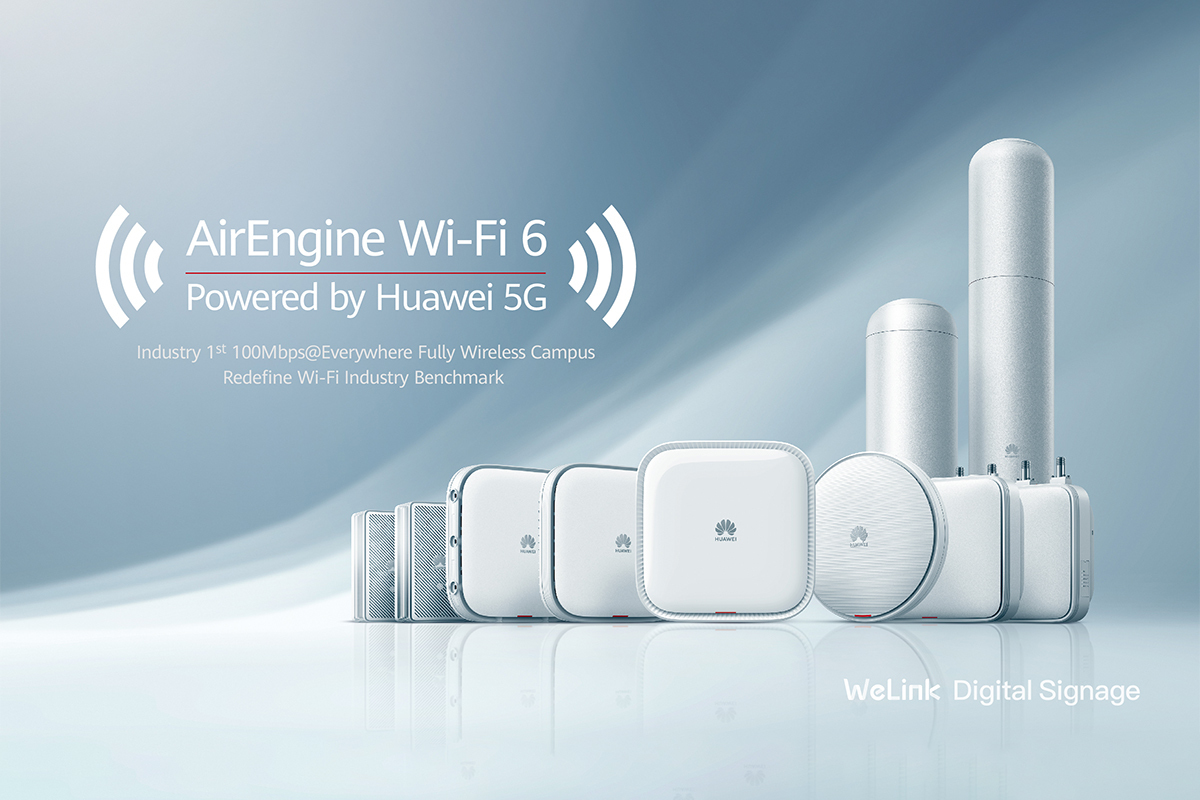Enterprise products, solutions & services
[March 12, 2020]From IoT devices to mobile operations, there are literally thousands of products to help enterprises transform digitally.Tam Dell'Oro, Founder and CEO of Dell’Oro Group, expects that Wi-Fi 6 will become mainstream in 2020, as manufacturers bring products to market at prices that will likely drive mass adoption. Early enterprise adopters will gain a competitive edge in offering unprecedented connectivity and user experiences.
This is what you need to know as you make your decisions to upgrade your Wi-Fi enterprise network.

Wi-Fi 6 is the next-generation wireless standard. It’s faster than previous versions but more than just speed, it provides better performance in high-traffic areas, such as schools, large offices, factories, shopping malls, airports, and stadiums.
The technology allows more Wi-Fi devices on a single network, where access points can communicate with more devices at once. Access points can send data to multiple devices in the same broadcast, and Wi-Fi devices can schedule check-ins with the access point. Together with 5G, Wi-Fi 6 helps build a more connected, intelligent network with uninterrupted connectivity.
Huawei AirEngine Wi-Fi 6, powered by the company’s top-notch 5G technology, comprises a series of next-generation products which should be at the top of your list if you’re looking for effective digital transformation. Why? Let’s look at the key reasons:
• It’s ultra-fast, running at an impressive rate of 10 Gbit/s without any wait time.
• It keeps business running for mission-critical applications. The unique Smart Antenna delivers steadier coverage (20% wider coverage with 100% improvement in signal strength in the same spot); uninterrupted roaming to enable more stable mobile office and operations (zero package loss); and accelerated applications that ensure a more stable VR/UHD experience (with latency less than 10ms).
• It connects anytime, anywhere, enabling always-on 100Mbps Wi-Fi continuous networking at scale, underpinned by Huawei’s 5G technologies.
Huawei AirEngine Wi-Fi 6 Access Points bring connectivity in enterprises and public spaces to another level, vastly boosting productivity and operational efficiency. User experiences can be guaranteed because by leveraging Huawei’s unique Software-defined radio (SDR) technology, even a 50% increase in the number of concurrent users will not affect the experience of each terminal. For warehouses, fewer interruptions mean productivity can be boosted by over 30% and low latency means learning experiences, for example, become much more effective and enjoyable. Most importantly, although some of these technologies may seem more than might be required in a given scenario, they can lower costs and total cost of ownership (TCO) while ensuring organizations can stay ahead of the competition.

Combining 10 new, exclusive technologies – including many industry firsts – it is the best product series of its kind. These technologies address many current networking challenges:
• 10 Gbps and beyond: The industry's only products to feature 16 spatial streams and a throughput rate up to 10.75 Gbit/s, the connections are faster than ever and provide a similar network experience as optical fiber for heavy-traffic services such as AR/VR and 4K HD video.
• Exclusive dual 10GE and uplink optical ports: Dual 10GE uplinks and 10G SPF+ optical fiber uplinks fully unleash the lightning-fast performance of Huawei AirEngine.
• Multi-IoT convergence: The unique built-in IoT card slots help implement converged deployment and unified access of a wide range of IoT applications and reduce TCO. It enables terminals that support IoT protocols, such as BLE, RFID, and ZigBee.
• More stable network coverage with zero blind spots: 16 built-in Smart Antennas, along with the 5G-powered beamforming algorithms boost coverage distance by 20% over traditional antennae. Stronger signals also provide users with network coverage that has zero blind spots.
• More stable applications with experience assurance: Proprietary SmartRadio intelligent application acceleration technology dynamically detects application types and implement HQoS, achieving latency as low as 10 ms for key applications. This ensures a smooth experience of real-time applications such as AR/VR and voice.
•More stable roaming with zero packet loss: Unique SmartRadio lossless roaming technology proactively optimizes the traditional roaming process and enables mobile terminals with Huawei EMUI/MagicUI to implement millisecond-level lossless roaming, ensuring office applications such as video conferencing and voice calls run smoothly on mobile.
• Lightning-fast and long-distance coverage: Huawei AirEngine 8760R has the industry's only 16 antennas – eight of them run at 2.4GHz radio, effectively improving signal receiver sensitivity and delivering 40% longer coverage than the industry.
•Industry’s first always-on 100Mbps Wi-Fi networking: Being the first in the industry to implement complete joint scheduling of OFDMA and MU-MIMO, Huawei’s solutions greatly improve network-wide performance in high-density access scenarios. With AI-enabled intelligent O&M systems, proactive detection predicts network status to ensure optimal performance.
•Software-defined radio (SDR): With the industry’s first software-defined radio frequency (RF) technology, it allows free switching between Dual RF, Triple RF and Dual RF + scan mode to address meet user expectations in high bandwidth, high-concurrency and high interference scenarios.
•Flexible right-to-use (RTU) mode for investment protection: A number of spatial streams can be upgraded by enabling the RTU mode, so a two-radio mode can be switched to three-radio mode through SDR, or additional independent scanning radios can be added to the RTU to meet the performance requirements of an increasing number of users and terminals.
Huawei recently launched 10 new models of the AirEngine Wi-Fi 6 series, led by the flagship AirEngine 8760 AP which delivers an air-interface data rate of up to 10.75 Gbps – that’s twice the industry average. The series covers a wide range of scenarios and comprise the most comprehensive Wi-Fi 6 line-up in the industry.
Act now to stay ahead of your competitors.